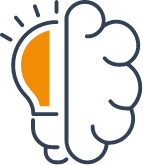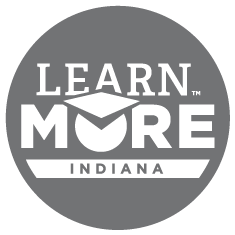Career Discovery
Discover your career options
Career Discovery Meetings (CDM)
House Enrolled Act (HEA) 1002-2023 mandates that students in grades 11 and 12 engage in a 30-minute, in-person Career Discovery Meeting (CDM) with an approved postsecondary educational institution, intermediary, employer, or labor organization. These meetings are designed to help students explore future career opportunities and understand the educational requirements needed to achieve their goals.
What to Expect in a Career Discovery Meeting
Each CDM provides a unique opportunity for students to learn directly from professionals.
The meetings must:
- Take place on school property
- Be conducted in person
- Include no more than five students at a time (Unless conducted by a post-secondary institution)
- Occur during school hours
- Last for 30 minutes
During the first 25 minutes, students will discuss future career opportunities and the necessary education levels. The final 5 minutes are dedicated to verifying the meeting’s completion via the Indiana Commission for Higher Education’s ScholarTrack website.
Reporting Your Meeting
Students will record their CDM by logging the required information into ScholarTrack using their Scholar ID and a temporary PIN or their “Full Student” account. Information for creating a ScholarTrack account can be found here.
Opting Out of a Career Discovery Meeting
Students can opt out of a CDM if:
- The school submits a written request to the Indiana Commission for Higher Education (CHE) to waive the meeting requirement if no approved entities are available to meet with students.
- A parent or an emancipated student submits a written opt-out request to the school or CHE.
Students do not need to complete a CDM if they:
- Participate in a school-approved program where they work for an employer or labor organization part-time and attend school part-time.
- Receive career coaching services through the career coaching grant under IC 21-18-20.
- Attend an in-person meeting hosted by an approved intermediary within the same school year.
Want to learn more?
Visit our FAQ page for more information on CDM implementation.
What kind of jobs are out there & how can I find them?
It’s a good idea to look for careers that are hiring people, so you can put your hard-earned degree to work for you. Depending on where you want to work, some jobs are more in-demand than others.
Here in Indiana, some of the fastest-growing careers include registered nurses, teachers, welders and machinists. Visit INDemand Jobs to see an overview of these careers, along with average salaries and degree requirements.
Visit Indiana Career Explorer to access more resources like skills assessments, interest surveys and more. Just create your profile to get started!
Take the career interests survey.
In this survey, you can narrow down some career options by ranking the activities you like to do. When you’re finished, your highest ranked interests will match you with careers you may enjoy.
Take the skills assessment.
Everyone is good at something. Some people are better with numbers. Some people can combine colors and textures in unique ways. Some people enjoy working with their hands and being active. During this assessment, you’ll just mark how confident you feel while completing certain activities, and the results will list careers that require the skills you’re the best at.
Take the work values assessment.
How do you want your work-life balance to look? Do you want to work a more traditional “9-5” job? Maybe you see yourself working in a very hands-on role. How much money do you want to make? These are all important things to consider. This assessment will help you find out what matters most to you in your career and in your lifestyle.
Take the Agile Work Profiler.
You have things you like to do and are good at doing. Take the Agile Work Profiler to find out how your interests translate into skills employers value and words to use that describe the value you bring.

What's Next?
After you have identified the career you are hoping to pursue, it is time to start planning for your future education. This involves choosing a college or certification program. For guidance on how to do this, visit Planning for College.
